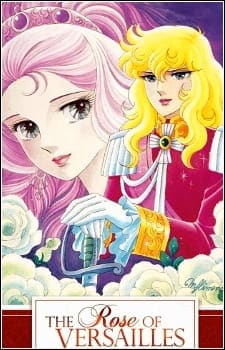Alternative Titles
Synonyms: Berusaiyu no Bara
Japanese: ベルサイユのばら
English: The Rose of Versailles
German: Die Rose von Versailles
French: Lady Oscar
Information
Episodes:
40
Status:
Finished Airing
Aired:
Oct 10, 1979 to Sep 3, 1980
Broadcast:
Wednesdays at 19:00 (JST)
Duration:
24 min. per ep.
Rating:
PG-13 - Teens 13 or older
Statistics
Score:
8.331 (scored by 3058530,585 users)
Ranked:
#241 2
2
based on the top anime page. Please note that 'Not yet aired' and 'R18+' titles are excluded.
Popularity:
#2107
Members:
100,587
Favorites:
3,072
Resources
|
|


































